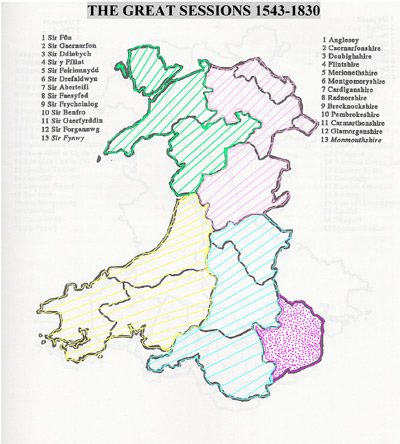The Welsh have been exporting their talents and culture to England and beyond since the 5th century. Helen Morgan from Abergavenny Local History Society reports.

William Aubrey, MP for Carmarthen (1554) and Brecon (1558)
First it was the Celtic saints who carried their Christian faith to new territories in the centuries that followed the Romans’ departure. Then, in the early 15th century when Henry V was waging war in Normandy, many of his captains were Welshmen (Cymry) as were the bowmen who excelled on the battlefield. Distinguished service often led to the favoured few receiving grants of denizen status which opened the way to wealth and social standing within Wales and at court.
But it was the Tudor conquest of England at Bosworth in 1485 that afforded the greatest opportunities at Court. While many Welsh people lived on or below the poverty line, the gentry moved into every conceivable avenue of advancement including the law and JP patronage.
The 1530s and 1540s were dramatic times. Not only did religion change as Henry VIII appointed himself Supreme Head of the Church. With the Acts of Union, both the March and Principality were wiped off the map and Wales became 13 counties. Twelve were grouped into four arithmetically tidy judicial circuits for a Welsh Great Sessions — at which point Monmouthshire became unlucky No 13. Despite being overwhelmingly Welsh in culture and language, its people were required to send litigation to Westminster or have criminal cases heard on the Oxford assize circuit, says Thomas Glyn Watkin, author of The Legal History of Wales. Parliamentary representation also followed. Many of the first MPs for Wales, including William Aubrey from Brecon, were lawyers by profession.

Wales was divided into four areas for judicial administration, each comprising three shires. Monmouthshire became an anomaly because 13 was arithmetically inconvenient.
By now primogeniture had largely replaced the Welsh law of “Cyfran” where land was shared among male descendents. This drew disinherited sons into professions such as the law and the Church. By Elizabethan times, Welsh bishops appeared in Welsh dioceses for the first time in a hundred years. In 1571, Dr Huw Price founded Jesus College, Oxford, and in the century that followed, the numbers of Welshmen attending university and Inns of Court soared. Top lawyers included David Lewis (buried at St Mary’s, Abergavenny) and Thomas Yale (after whose descendent, Elihu, the college in Connecticut was named).
By the late 18th century, Welsh-American campaigners were so visible that many people thought that most signatories of the Declaration of Independence were Welsh. In fact about half, including Thomas Jefferson, were of Welsh descent.
Professor Thomas Watkin’s talk on Legal Wales Past and Present in the Borough Theatre on September 27 starts at 7.30pm

